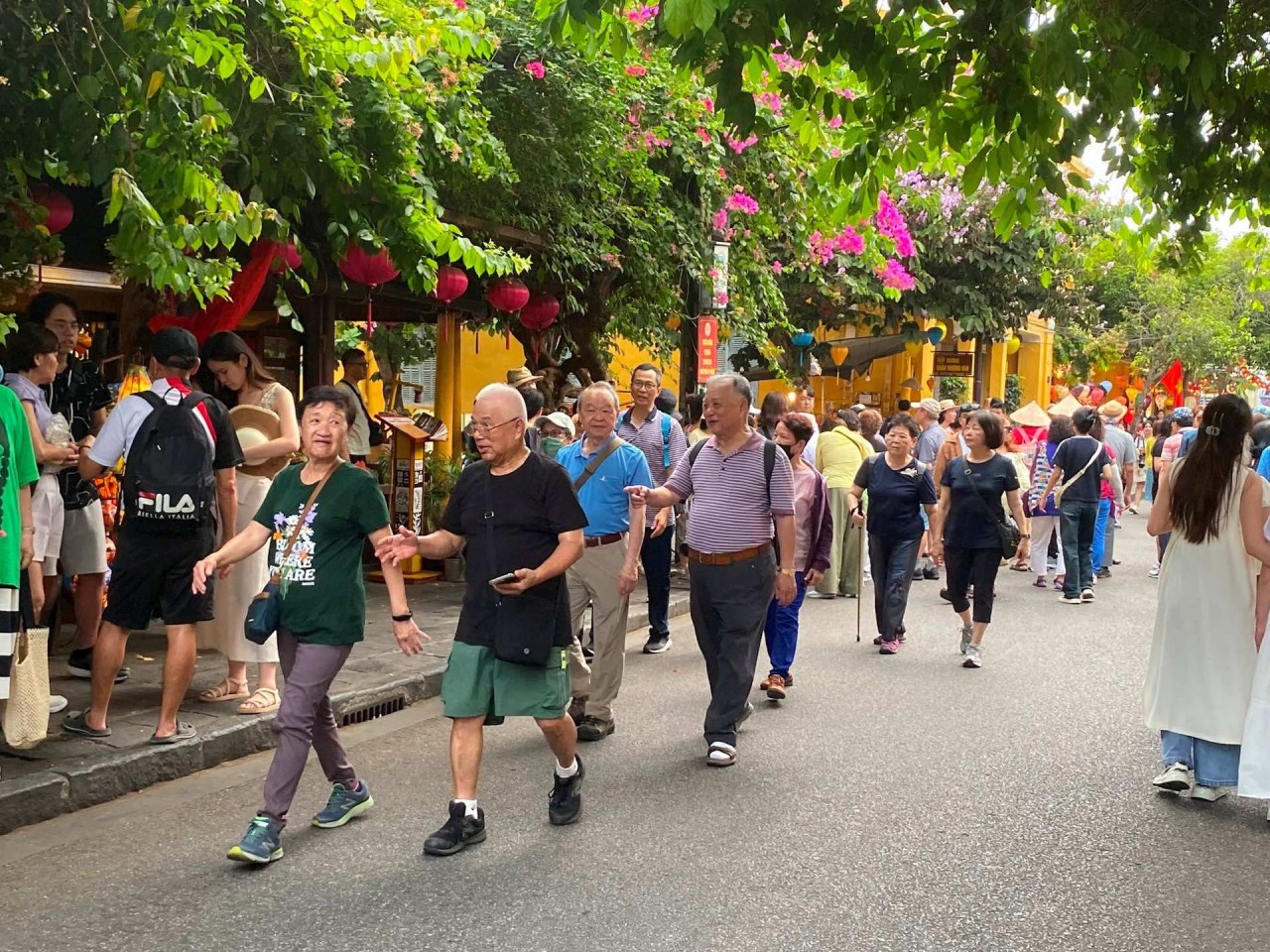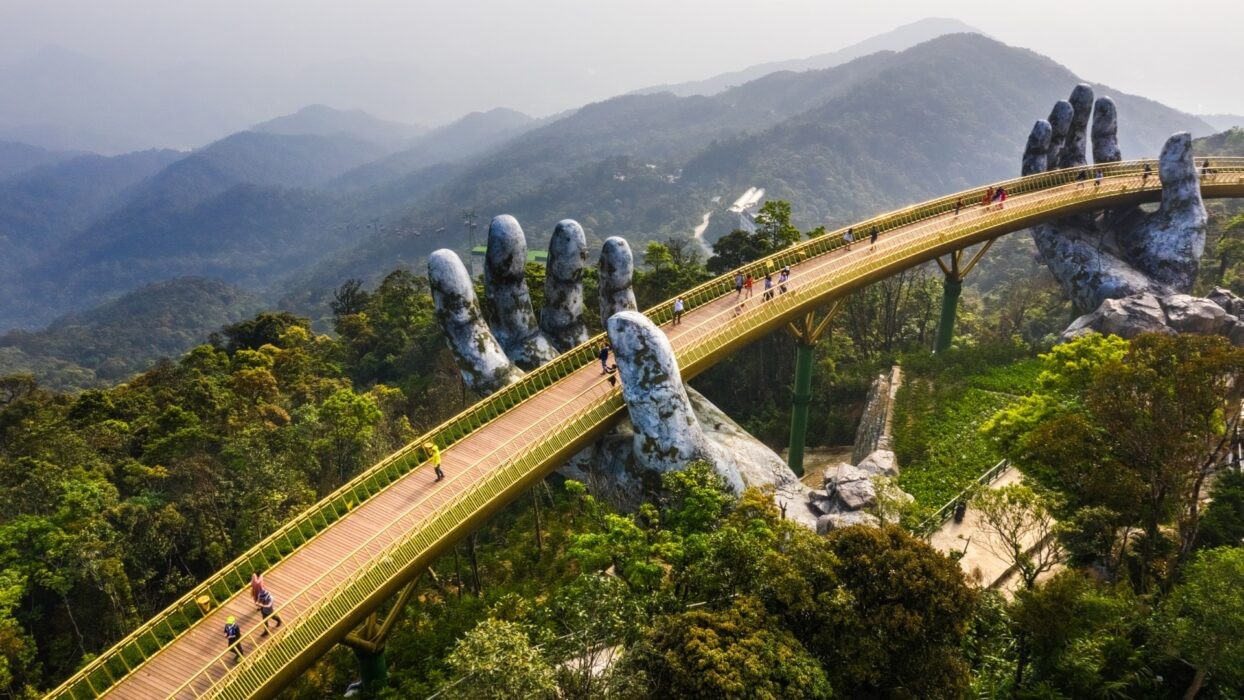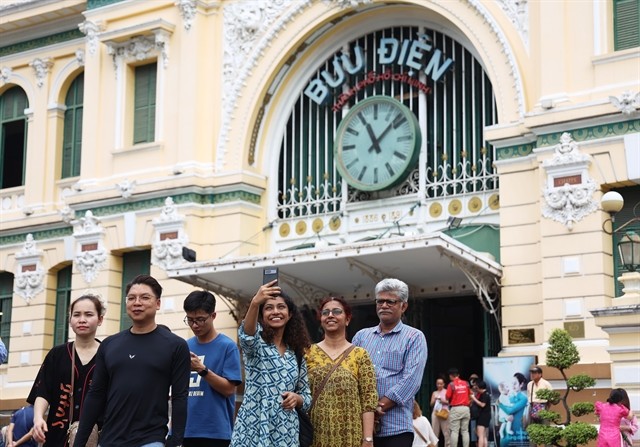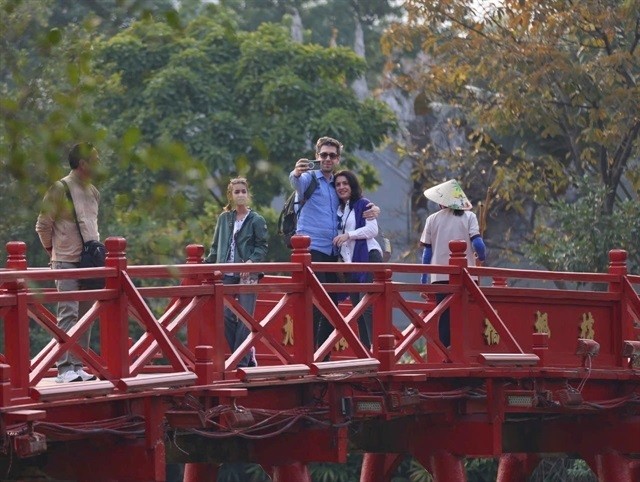Restored towers at My Son sanctuary ready to serve visitors
Tower K, a rare building remaining in the complex of temples at My Son Sanctuary in Duy Xuyen district, the central province of Quang Nam, is now ready to welcome visitors after being upgraded with the support of Indian experts.
 |
My Son Sanctuary comprises eight groups of 71 monuments built throughout the 7th -13th centuries. (Source: VNA)
The upgrading is part of the first phase of a restoration project of the My Son sanctuary from 2017-2018, under which Indian experts have also helped consolidate Tower H in the complex.
During the restoration process, Vietnamese and Indian experts discovered walls, stone lion statutes and objects, which are now preserved scientifically.
In 2017, the My Son Sanctuary welcomed 290,000 tourists, up more than 10 per cent year-on-year, raking in nearly VND 50 billion (USD 2.15 million).
Once the religious and political capital of the Champa Kingdom, My Son Sanctuary is located in a hilly landscape in Duy Phu commune, Duy Xuyen district, about 70 km southwest of central Da Nang city and 40 km from Hoi An city.
It comprises eight groups of 71 monuments built throughout the 7th -13th centuries.
The first construction of My Son dates back to the 4th century under the reign of Bhadravarman for the worship of God Shiva-Bhadresvara. But later on, the temple was destroyed.
At the beginning of the 7th century, King Sambhuvarman had it rebuilt and rebaptised Sambhu-Bhadresvara. Each new monarch came to My Son after his accession to the throne for the ceremony of purification and to present offerings and erect new monuments, which explains why My Son is the only place where Cham art flourished without interruption from the 7th to 13th century./.
VNF/VNA
Recommended
 Travel
Travel
Strategies for Sustainable Growth of Vietnam’s Tourism from International Markets
 Travel
Travel
Vietnam Strengthens Its Presence On The Global Tourism Map
 Multimedia
Multimedia
Phong Nha-Ke Bang National Park Named Top Adventure Travel Site
 Travel
Travel
Vietnam Welcomes Record-High Number of International Visitors
 Travel
Travel
Luxury Train From Hanoi To Hai Phong To Be Launched In May
 Travel
Travel
Phong Nha Named Top Budget-Friendly Travel Destination for Spring 2025: Agoda
 Travel
Travel
Four Indian Films Introduced to Lao Cai Audience
 Travel
Travel
